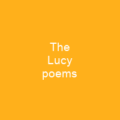The Enigma of Christopher Smart: A Poet Constrained
Imagine a poet, confined within the walls of an 18th-century asylum, penning some of his most profound works. This is the story of Christopher Smart, whose genius was tested by the very institutions meant to care for him.
The Great Confinement: Madness and Poetry
In the 1750s, Christopher Smart found himself in a predicament that would shape his life and work. Admitted into an asylum by his father-in-law, John Newbery, he was diagnosed as ‘incurable.’ Yet, it was within these walls that some of his greatest poetry was born—Jubilate Agno and A Song to David. How could madness give birth to such brilliance?
The Debate on Madness: Humane Care or Punishment?
In the 18th century, the nature of madness was hotly debated. Physicians like William Battie argued for humane care, while others like John Monro advocated isolation. The British asylum system itself was criticized for its inhumane treatment, with patients often denied contact and proper nutrition. Was Smart’s confinement a necessary evil or an unjust imprisonment?
Smart’s Asylum Years: A Time of Revelation
During his time in the asylums, Smart abandoned traditional poetic genres to write religious poetry. His work Jubilate Agno, for instance, reveals a desire for ‘unmediated revelation.’ This period may have been a form of self-therapy or focus, allowing him to delve deeply into his faith and spirituality.
From Cambridge to Asylum: A Life Interrupted
Before his confinement, Smart had published many poems at Pembroke College, Cambridge. His friendship with John Newbery led to the publication of ‘Poems on Several Occasions.’ However, financial instability and a contract for The Universal Visiter eventually led to his obsession with religion and eventual madness.
Social Perception: Mad or Genius?
During his time in asylums, Smart was seen by many as mad. But the 20th century brought a reevaluation of his work. Critics like Robert Browning argued that his madness allowed him to compose poetry similar to John Milton and John Keats. The Victorian poet believed that temporary madness gave Smart insight into his subject, allowing him to produce language straight from his soul.
Modern Interpretations: Madness and Poetry
In the 20th century, critics had differing views on Smart’s mental state while writing his poems. Some saw him as ‘legally mad’ due to medical treatment in Bedlam but still produced ‘lyric genius.’ Others connected madness with poetic genius, suggesting that society was prejudiced against those who experienced enthusiasm and spiritual connection.
Conclusion: The Legacy of Christopher Smart
The life of Christopher Smart is a testament to the complexities of mental health and creativity. His confinement in asylums led him to write some of his most profound works, challenging our perceptions of madness and genius. As we continue to explore his legacy, one thing remains clear: the lines between sanity and insanity are often blurred, especially for those who dare to express their innermost thoughts through poetry.

You want to know more about Asylum confinement of Christopher Smart?
This page is based on the article Asylum confinement of Christopher Smart published in Wikipedia (retrieved on December 3, 2024) and was automatically summarized using artificial intelligence.







